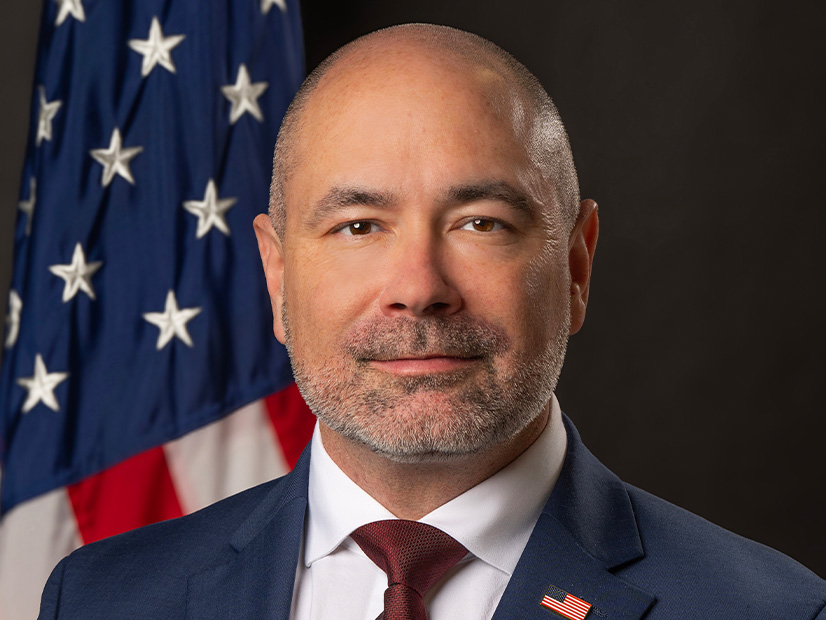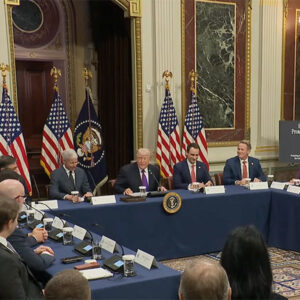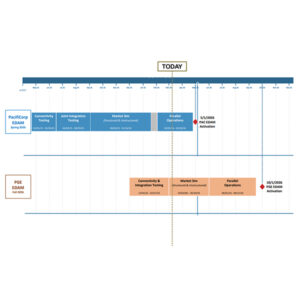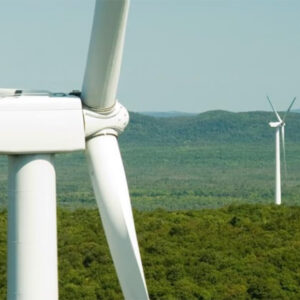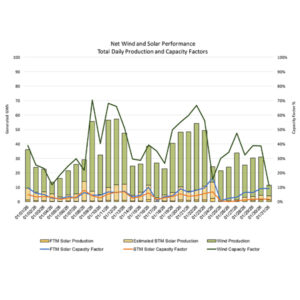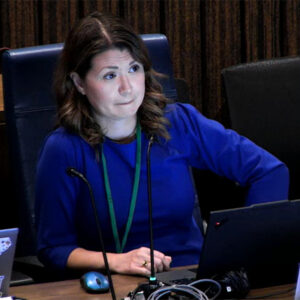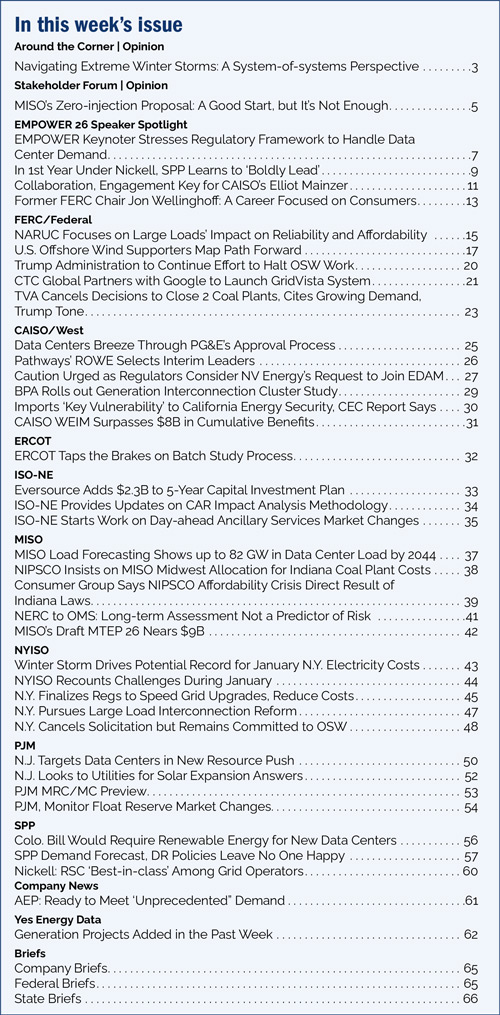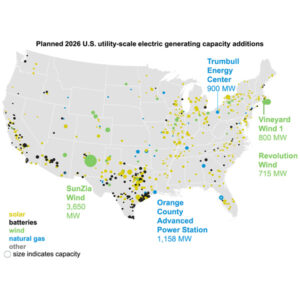The Senate Energy and Natural Resources Committee advanced FERC Commissioner David LaCerte’s nomination for a new, full five-year term by a vote of 12-8.
President Donald Trump gathered seven tech leaders at the White House to sign a ratepayer protection pledge holding that they will pay all the costs associated with the boom in construction of data centers.
FERC approved settlements with AES Indiana and the U.S. Army Corps of Engineers Savannah District for violations of reliability standards.
It’s an “all-hands-on-deck” moment for CAISO to open its extended day-ahead market in less than two months, CAISO’s CEO Elliot Mainzer said at a Western Energy Market Board of Governors meeting.
For the first time in years, California’s grip on Western market design is genuinely at risk, writes Nick Myers of the Arizona Corporation Commission.
RTO Insider
MISO opened a third review of a long-range transmission project, this time because three substations are needed more than five years ahead of schedule to accommodate new data center load.
FERC dismissed a complaint about a $385 million asset condition project on an Eversource Energy transmission line in New Hampshire, finding it failed to demonstrate any violations by the company.
Washington’s attorney general and a coalition of public interest organizations filed separate lawsuits to overturn the Department of Energy’s order requiring TransAlta to continue operating the state’s last coal-fired plant beyond its scheduled retirement.
ERO Insider
NERC's report on the GridEx VIII security exercise outlined the challenges that participants weathered during the distributed play and executive tabletop.
In their annual report, NERC's Compliance Monitoring and Enforcement Program and Organization Registration and Certification Program said the ERO's backlog of violations dropped by nearly 50% in 2025.
Columnist Dej Knuckey says there’s no doubt AI can be exponentially faster, smarter, and more innovative and efficient than the current workforce, but can it be reliable?
NetZero Insider
The state authority managing New York’s clean-energy transition estimated one part of complying with the state’s climate law could carry a gross impact of more than $4,000 per year per household in some cases.
PSEG is working to meet the energy needs expressed by New Jersey Gov. Mikie Sherrill and is gearing up to help with the potential expansion of the state’s nuclear and gas generation fleet.
New Jersey is studying whether to use funds from the Regional Greenhouse Gas Initiative to keep down electricity rates and restructure the way utilities are compensated in an effort to reduce the pressure on electricity prices.
